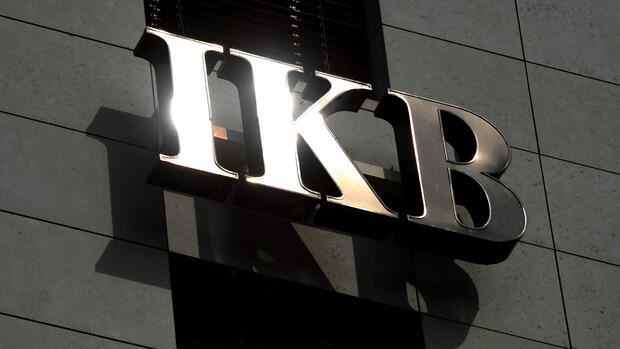Frankfurt Mittelstandsbank IKB is entering the digital brokerage of corporate loans. “We want to develop Fundingport, our joint venture with Hypoport, into a brokerage platform for SME loans,” said Ralph Müller, IKB board member responsible for strategy, digitization and operations, to Handelsblatt. “Hypoport contributes the technological competence, we the banking and advisory competence in financing matters.”
At the end of 2020, IKB acquired a 30 percent stake in the Hypoport subsidiary Fundingport. In essence, the new financing platform copies the concept of Interhyp in the construction financing or Check24 in the consumer credit business. “For IKB, the platform business is the pillar of our growth strategy,” says Müller.
He is convinced that business models based on platforms are becoming more and more important in banking: “Platforms already play an important role in mortgage lending and consumer loans, and such tendencies can also be observed in loans for smaller business customers,” he says.
The manager, who joined IKB in February of this year, not only knows the traditional banking business, but also digital business models: he was once one of the founding fathers of the Planethome mortgage lending platform. On his LinkedIn profile, he describes himself as a “sparring partner” and one of the first investors in fintechs such as Raisin or Moneypark.
Top jobs of the day
Find the best jobs now and
be notified by email.
Fundingport is expected to start with around 50 banks in January 2022. “These include banks that want to expand their business area regionally, but also banks that are themselves nationally active, as well as foreign banks,” says Müller.
The manager, who previously headed Postbank’s corporate customer business, describes the platform business as a “pillar of our growth strategy”.
(Photo: IKB Bank)
Platforms for corporate loans are not a sure-fire success: some fintechs such as Fintura that have tried that are long history again. Most active providers, however, are primarily aimed at business customers and very small companies and usually arrange loans below the one-million mark.
The customer group that IKB is interested in is larger: “Our medium-sized target group are around 50,000 German companies with annual sales of ten to 100 million euros,” says Müller. The financing volume in this customer group is usually in the order of one to ten million euros. “On this scale, financing can be modularized to such an extent that it can be easily communicated via platforms.”
Cleverly chosen loan sizes
Volker Brühl, the managing director of the Center for Financial Studies (CFS), finds this convincing: “That is exactly the niche in which such a concept can work,” he says. “In this range, the lot sizes of the loans are on the one hand not too small to be profitable, and on the other hand not yet so large that they have to be tailor-made.”
Because the biggest problem with small loans is that certain processing costs are always incurred, regardless of the loan amount. “For this reason, the processing costs for small loans are often not cost-covering.”
For IKB, the planned platform for medium-sized companies offers the opportunity to tap into a new target group, because the Düsseldorf institute usually finances larger companies. “This also has the advantage that we do not cannibalize our existing customer relationships with upper German medium-sized companies through the platform,” explains Müller.
The institute does not want to appear on the platform as a lender. “Our consultants will not broker any IKB loans, but rather sell products from other banks in a completely neutral manner,” explains Müller. “We do not want to give the impression that we are picking out the fillet pieces and just conveying the rest to the other banks.”
The IKB only earns money through the agency commission, not through loan interest. CFS managing director Brühl also considers this to be “very clever”: “This way, IKB can contribute its know-how without burdening its own balance sheet. IKB knows the funding business and has in-depth industry expertise in many branches of industry. “
For the banks connected to the platform, the concept has the advantage that they only pay commissions when there is a deal. Banks that are not active nationwide come to customers in other regions. And banks without experience with development banks benefit from the fact that IKB is considered an expert in this area.
Less paperwork for companies
The advantage for medium-sized companies: less paperwork. You only have to pass on all the data relevant for a credit decision in one bundle. “We can then use the algorithm to determine which banks would give this company credit, up to what amount and under what conditions,” promises Müller. The companies would also only have to report the information that is important for the bank to verify customer identity.
It remains to be seen whether that will be enough to achieve the market leadership that IKB board member Müller is striving for in this segment. However, the former head of corporate customers at Postbank can show initial successes. In the current pilot phase with several banks, the IKB consultants have already arranged initial financing. “By the end of the year it should be financings in the amount of 20 to 30 million euros,” says Müller.
More: IKB is fighting its way back to profitability
